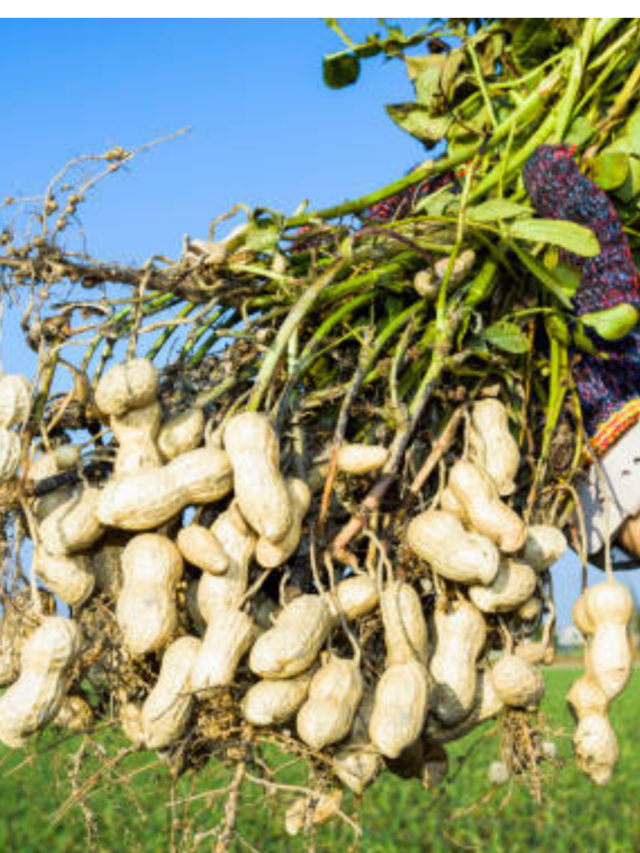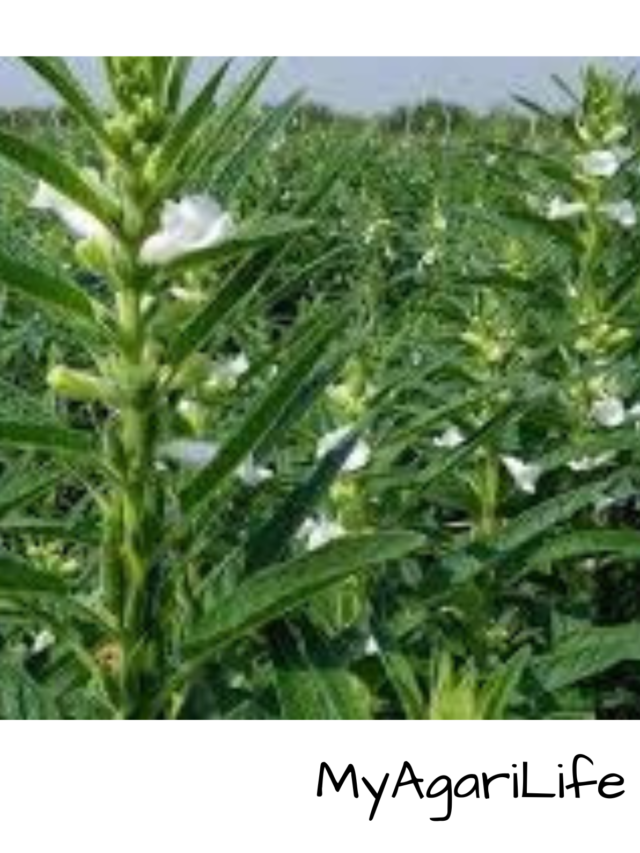Content of table:
1.Introduction to Eco-friendly Farming Practices
2.Meena Desai’s Background and Expertise
3.Key Principles of Eco-friendly Farming
4.Meena Desai’s Initiatives in Eco-friendly Farming
5.Success Stories of Farmers Inspired by Meena Desai
6.Collaborations and Partnerships
7.Educational Resources and Training Programs
8.Future Outlook and Recommendations
10.Conclusion
11.References
Introduction to Eco-friendly Farming Practices
In today’s world, where environmental concerns are at the forefront, the significance of eco-friendly farming practices cannot be overstated. Sustainable agriculture, championed by individuals like Meena Desai, offers a path towards cultivating food while minimizing environmental impact and preserving natural resources. This introduction serves as a comprehensive overview of eco-friendly farming practices, their importance, and the role of Meena Desai as a prominent advocate for sustainable agriculture.

1.Importance of Sustainable Agriculture:
1.Addressing environmental challenges: Eco-friendly farming mitigates the negative impact of conventional farming on ecosystems, such as soil degradation, water pollution, and greenhouse gas emissions.
2.Securing food production: By adopting sustainable practices, we ensure long-term food security for current and future generations.
3.Protecting biodiversity: Sustainable farming methods preserve and promote the diversity of plant and animal species, fostering a resilient and balanced ecosystem.
2.Benefits of Eco-friendly Farming:
1.Environmental preservation: Practices like organic farming, agroforestry, and integrated pest management reduce chemical inputs, prevent soil erosion, and promote water conservation.
2.Improved soil health: Sustainable techniques such as crop rotation, cover cropping, and composting enhance soil fertility, structure, and nutrient retention.
3.Climate change mitigation: Eco-friendly farming reduces greenhouse gas emissions, promotes carbon sequestration, and contributes to climate change adaptation and resilience.
3.Introduction to Meena Desai:
1.Background and expertise: Highlight Meena Desai’s experience and qualifications in sustainable agriculture, underscoring her deep knowledge and commitment to eco-friendly farming practices.
2.Advocacy and leadership: Describe Desai’s active role in promoting sustainable agriculture through public speaking, writing, and engaging with farmers, policymakers, and organizations.
4.Meena Desai’s Impact in Promoting Eco-friendly Farming:
1.Projects and initiatives: Detail specific projects or initiatives led by Meena Desai that have successfully implemented eco-friendly farming practices.
2.Innovation and research: Highlight Desai’s contributions to the development and advancement of innovative techniques and technologies in sustainable agriculture.
3.Awareness and education: Discuss Desai’s efforts to raise awareness about eco-friendly farming through workshops, seminars, and educational campaigns.
Meena Desai’s Background and Expertise
Meena Desai is a highly accomplished individual with a deep-rooted passion for sustainable agriculture and eco-friendly farming practices. Her expertise and extensive experience in the field have established her as a respected advocate for promoting environmentally conscious farming methods. Here is an overview of Meena Desai’s background and expertise:
1.Education and Qualifications:
Meena Desai holds advanced degrees in agricultural sciences, specializing in sustainable agriculture and natural resource management. Her academic background provides her with a strong foundation and understanding of the scientific principles and practices behind eco-friendly farming.
2.Professional Experience:
Throughout her career, Meena Desai has worked tirelessly to promote sustainable agriculture and raise awareness about eco-friendly farming practices. She has held various roles in agricultural research institutions, government agencies, and non-profit organizations dedicated to sustainable development.
3.Research and Publications:
Meena Desai has contributed significantly to the body of knowledge in sustainable agriculture through her research and publications. She has authored numerous papers and articles that focus on innovative techniques, best practices, and the impact of eco-friendly farming on food security, environmental conservation, and rural development.
4.Fieldwork and Implementation:
Beyond theoretical knowledge, Meena Desai has a hands-on approach to sustainable agriculture. She has actively engaged with farmers, visiting agricultural communities worldwide, to understand their challenges and develop practical solutions that align with eco-friendly farming principles. By collaborating closely with farmers, she has been able to implement sustainable practices on the ground and witness their positive impact.
5.Recognition and Awards:
Meena Desai’s dedication and expertise in promoting eco-friendly farming have garnered recognition within the agricultural community and beyond. She has received prestigious awards and accolades for her outstanding contributions to sustainable agriculture, demonstrating the significance and impact of her work.
6.Leadership and Advocacy:
Meena Desai’s leadership skills and persuasive advocacy have played a vital role in driving the adoption of eco-friendly farming practices. Through public speaking engagements, participation in conferences, and policy advocacy, she has been instrumental in influencing policymakers, agricultural organizations, and communities to embrace sustainable agriculture as a viable and necessary solution for the future.
Meena Desai’s extensive background, qualifications, practical experience, and dedication to sustainable agriculture position her as a leading figure in promoting eco-friendly farming practices. Her expertise is grounded in research, implementation, and a deep understanding of the environmental, social, and economic benefits of sustainable agriculture. As we explore Meena Desai’s initiatives and impact further, we will gain deeper insights into her visionary approach and the positive changes she has brought to the realm of agriculture.
Key Principles of Eco-friendly Farming
Eco-friendly farming, also known as sustainable agriculture or organic farming, is rooted in principles that prioritize environmental stewardship, natural resource conservation, and the promotion of biodiversity. These principles guide farmers and agricultural practitioners in adopting practices that minimize negative impacts on the environment while promoting long-term sustainability. Here are some key principles of eco-friendly farming:
1.Organic Farming Methods:
Organic farming avoids the use of synthetic pesticides, fertilizers, and genetically modified organisms (GMOs). Instead, it emphasizes natural approaches, such as crop rotation, companion planting, and biological pest control, to maintain soil fertility and control pests and diseases.
2.Soil Conservation:
Eco-friendly farming focuses on preserving and improving soil health. This includes practices like minimal soil disturbance, cover cropping, and the use of organic matter (compost, manure) to enhance soil structure, nutrient content, and water-holding capacity. By preventing erosion and soil degradation, farmers maintain the long-term productivity and sustainability of their land.
3.Water Conservation:
Sustainable agriculture aims to optimize water usage and reduce water pollution. Techniques such as drip irrigation, rainwater harvesting, and precision watering systems help minimize water waste. Additionally, implementing strategies to retain soil moisture, such as mulching and agroforestry, can enhance water conservation.
4.Biodiversity Preservation:
Eco-friendly farming promotes the protection and enhancement of biodiversity. Farmers create diverse habitats, including hedgerows, buffer zones, and pollinator-friendly gardens, to attract beneficial insects, birds, and other wildlife that contribute to natural pest control and pollination. Preserving native plant species and employing agroecological practices support ecosystem resilience and the long-term health of the farm.
5.Integrated Pest Management (IPM):
Integrated Pest Management is an approach that combines various pest control methods to minimize reliance on chemical pesticides. It involves monitoring pest populations, promoting natural predators, using pheromone traps, and employing cultural practices to disrupt pest lifecycles. IPM reduces chemical inputs while effectively managing pests and diseases.
6.Sustainable Livestock Management:
Sustainable agriculture includes responsible and ethical livestock management practices. These involve providing animals with ample space, access to pasture, and a balanced diet. Methods like rotational grazing and utilizing animal manure as organic fertilizer help reduce the environmental impact of livestock production.
7.Renewable Energy Adoption:
Eco-friendly farming encourages the use of renewable energy sources to power farm operations. Solar panels, wind turbines, and biogas digesters are examples of sustainable energy systems that can reduce reliance on fossil fuels and decrease greenhouse gas emissions.
8.Technology Integration:
The integration of technology in sustainable agriculture can enhance efficiency and productivity while minimizing environmental impact. Precision agriculture tools, such as remote sensing, GPS guidance systems, and data analytics, enable farmers to optimize resource use, reduce waste, and make informed decisions.
By adhering to these key principles, farmers and agricultural practitioners can embrace eco-friendly farming practices that prioritize environmental sustainability, soil health, biodiversity, and resource conservation. Implementing these principles contributes to a more resilient and regenerative agricultural system, benefiting both the environment and the well-being of farming communities.
Meena Desai’s Initiatives in Eco-friendly Farming
Meena Desai has been at the forefront of promoting and implementing eco-friendly farming practices, making a significant impact through her initiatives. Her dedication and expertise have inspired farmers, communities, and policymakers to adopt sustainable agricultural practices. Here are some notable initiatives led by Meena Desai in the field of eco-friendly farming:

1.Farmer Training and Capacity Building:
Meena Desai has developed comprehensive training programs and capacity-building initiatives for farmers. These programs focus on educating farmers about eco-friendly farming techniques, organic certification processes, sustainable soil management, water conservation, and integrated pest management. By providing practical knowledge and resources, Desai empowers farmers to transition to sustainable agricultural practices effectively.
2.Demonstration Farms and Model Gardens:
Meena Desai has established demonstration farms and model gardens to showcase the practical implementation of eco-friendly farming practices. These sites serve as learning centers for farmers and agricultural professionals, where they can witness firsthand the benefits of sustainable agriculture. The demonstration farms highlight techniques such as organic pest control, composting, crop rotation, agroforestry, and water-efficient irrigation methods.
3.Community Engagement and Outreach:
Recognizing the importance of community involvement, Meena Desai actively engages with local communities to raise awareness about eco-friendly farming. She conducts workshops, seminars, and public awareness campaigns to promote the benefits of sustainable agriculture. Desai also collaborates with community-based organizations, NGOs, and farmer cooperatives to foster knowledge exchange, collective learning, and the adoption of sustainable farming practices.
4.Research and Innovation:
Meena Desai actively contributes to research and innovation in eco-friendly farming practices. She collaborates with agricultural research institutions to explore and develop innovative techniques that enhance sustainability. Through research, she identifies emerging trends, evaluates the efficacy of sustainable farming methods, and shares best practices with farmers and the scientific community.
5.Policy Advocacy:
Meena Desai advocates for policies that support eco-friendly farming practices at the local, regional, and national levels. She engages with policymakers, government agencies, and agricultural organizations to raise awareness about the benefits of sustainable agriculture. By providing evidence-based recommendations and guidance, Desai influences policy decisions that promote and incentivize eco-friendly farming practices.
6.Collaboration with International Organizations:
Meena Desai actively collaborates with international organizations working in the field of sustainable agriculture. Through these collaborations, she participates in global initiatives, shares knowledge, and contributes to the development of sustainable agricultural practices worldwide. Such collaborations help foster cross-cultural learning and the exchange of innovative ideas.
Through her diverse initiatives, Meena Desai has been instrumental in creating a positive impact on farmers’ livelihoods, environmental sustainability, and food security. Her efforts in training, demonstration, community engagement, research, policy advocacy, and international collaboration have helped establish a strong foundation for eco-friendly farming practices and have inspired numerous individuals and communities to adopt sustainable agriculture methods.
Success Stories of Farmers Inspired by Meena Desai
Meena Desai’s advocacy and initiatives in eco-friendly farming have had a profound impact on farmers, inspiring them to adopt sustainable agricultural practices. Here are a few success stories of farmers who have been inspired by Meena Desai:
1.Ravi Patel – Organic Farmer in Gujarat, India:
Ravi Patel, a farmer from Gujarat, was struggling with declining soil fertility and increasing pest problems due to conventional farming practices. After attending one of Meena Desai’s workshops on organic farming, Ravi decided to transition his farm to organic methods. With Desai’s guidance, he implemented techniques such as crop rotation, composting, and biological pest control. Within a few years, Ravi’s farm saw significant improvements in soil health, increased biodiversity, and reduced input costs. Today, Ravi Patel is not only practicing organic farming successfully but has become a local advocate, sharing his experiences and knowledge with other farmers.
2.María González – Sustainable Coffee Farmer in Costa Rica:
María González, a coffee farmer in Costa Rica, faced challenges of declining yields and soil erosion due to conventional farming practices. After attending a sustainability workshop led by Meena Desai, she learned about agroforestry and soil conservation techniques. Inspired by Desai’s teachings, María implemented shade-grown coffee cultivation, integrated fruit trees into her farm, and adopted practices to prevent soil erosion. As a result, her coffee farm experienced improved soil fertility, reduced water runoff, and increased bird and insect biodiversity. Moreover, her coffee quality and market value increased, leading to better income and a thriving sustainable farming business.
3.Jackson Mukasa – Permaculture Farmer in Uganda:
Jackson Mukasa, a farmer in Uganda, struggled with unpredictable weather patterns and declining soil quality. After attending a permaculture training program organized by Meena Desai, Jackson transformed his farm using permaculture principles. He implemented techniques such as contour planting, mulching, and agroforestry. Through water-harvesting techniques and natural pest control methods, he created a self-sustaining ecosystem on his farm. Jackson’s permaculture farm now boasts improved soil health, increased crop yields, and enhanced biodiversity. Inspired by his success, he has become a local leader, teaching other farmers in his community about permaculture and its benefits.
These success stories represent just a few examples of how Meena Desai’s influence has transformed the lives of farmers and their agricultural practices. Through her guidance, education, and inspiration, farmers have been able to overcome challenges, improve their farm productivity, and embrace sustainable agriculture methods. Meena Desai’s impact extends beyond individual farmers, as the adoption of eco-friendly farming practices contributes to environmental conservation, food security, and the overall sustainability of farming communities.
Collaborations and Partnerships
Meena Desai recognizes the importance of collaborations and partnerships in promoting eco-friendly farming practices. By working with diverse stakeholders, she amplifies her impact and creates a more extensive network for knowledge exchange and implementation of sustainable agricultural methods. Here are some examples of collaborations and partnerships that Meena Desai has engaged in:
1.Government Agencies and Agricultural Departments:
Meena Desai collaborates with government agencies and agricultural departments to advocate for policies and programs that support sustainable agriculture. She provides input and expertise in the development of agricultural policies, ensuring that eco-friendly farming practices are integrated into national agricultural strategies. Collaborating with government entities also helps Desai access resources, funding opportunities, and reach a broader audience.
2.Non-Governmental Organizations (NGOs):
Meena Desai works closely with NGOs focused on sustainable agriculture and environmental conservation. She collaborates on joint initiatives, such as training programs, demonstration farms, and research projects. NGOs provide valuable support in implementing sustainable farming practices, raising awareness, and reaching out to marginalized communities. Collaborating with NGOs also allows for the pooling of resources and expertise, enhancing the effectiveness of sustainable agriculture initiatives.
3.International Organizations and Development Agencies:
Meena Desai engages with international organizations and development agencies that prioritize sustainable agriculture and rural development. She participates in conferences, workshops, and knowledge-sharing platforms to exchange ideas and experiences with experts from around the world. Collaborations with international organizations enable Desai to contribute to global initiatives, access funding for sustainable agriculture projects, and learn from best practices implemented in different regions.
4.Research Institutions and Universities:
Meena Desai collaborates with research institutions and universities to conduct scientific studies, pilot projects, and innovative research in the field of sustainable agriculture. By working with experts and scientists, she contributes to the development of evidence-based practices and fosters the integration of research findings into practical farming methods. Collaborations with academic institutions also provide opportunities for knowledge dissemination through publications and conferences.
5.Farmer Cooperatives and Associations:
Meena Desai actively engages with farmer cooperatives and associations to promote eco-friendly farming practices. She conducts workshops, training sessions, and field visits to these organizations, sharing her expertise and providing guidance on sustainable farming techniques. Collaborating with farmer cooperatives strengthens their capacity to adopt sustainable practices collectively and enhances their voice in advocating for policies that support environmentally friendly farming.
6.Private Sector and Agribusinesses:
Meena Desai collaborates with private sector entities, including agribusinesses, food companies, and retailers, to promote sustainable sourcing and supply chain practices. By working together, they aim to create market opportunities for farmers practicing eco-friendly farming and encourage the adoption of sustainable production methods throughout the value chain. Partnerships with the private sector also facilitate access to resources, technology, and market linkages for farmers.
These collaborations and partnerships allow Meena Desai to leverage the strengths and expertise of various stakeholders, creating a collaborative ecosystem that supports the adoption and scaling of eco-friendly farming practices. By working together, they contribute to the transformation of the agricultural sector towards sustainability, environmental stewardship, and improved livelihoods for farmers.
Educational Resources and Training Programs
Meena Desai is dedicated to providing educational resources and training programs to farmers, agricultural professionals, and communities interested in adopting eco-friendly farming practices. She understands the importance of knowledge dissemination and capacity building in driving the adoption of sustainable agriculture. Here are some examples of educational resources and training programs offered by Meena Desai:

1.Workshops and Seminars:
Meena Desai organizes workshops and seminars on various aspects of eco-friendly farming. These events cover topics such as organic farming techniques, soil conservation, water management, pest control, agroforestry, and sustainable livestock management. Through interactive sessions, practical demonstrations, and discussions, participants gain a deep understanding of sustainable farming practices and their benefits.
2.Training Programs for Farmers:
Meena Desai develops comprehensive training programs tailored specifically for farmers. These programs focus on equipping farmers with the knowledge and skills needed to transition to eco-friendly farming methods. They cover aspects such as soil health management, organic inputs and composting, crop rotation, integrated pest management, and sustainable irrigation practices. The training programs include both classroom sessions and hands-on field training to ensure practical learning.
3.Online Learning Resources:
Meena Desai creates online learning resources such as video tutorials, webinars, and e-books to reach a wider audience. These resources provide accessible and self-paced learning opportunities for farmers, agricultural professionals, and enthusiasts. Online platforms enable individuals from different locations to access valuable information and learn at their convenience.
4.Demonstration Farms and Model Gardens:
Meena Desai establishes demonstration farms and model gardens that serve as practical learning sites. Farmers and agricultural practitioners can visit these farms to observe and learn about eco-friendly farming practices firsthand. Demonstrations cover various techniques, including organic pest control, composting, crop diversification, and water-saving methods. Participants can witness the positive impact of sustainable farming practices on soil health, biodiversity, and productivity.
5.Informational Materials:
Meena Desai creates informational materials such as brochures, fact sheets, and pamphlets that provide concise and accessible information on eco-friendly farming practices. These materials cover key concepts, step-by-step guidelines, and tips for implementing sustainable farming methods. They serve as quick references for farmers and agricultural practitioners, empowering them to make informed decisions and adopt sustainable practices.
6.Farmer Field Schools:
Meena Desai organizes Farmer Field Schools, which are participatory learning programs where farmers learn from each other’s experiences. These schools provide a platform for farmers to share their challenges, successes, and innovative practices related to eco-friendly farming. Through guided discussions, field visits, and practical exercises, farmers gain knowledge, build networks, and develop their capacity in sustainable agriculture.
7.Partnership with Agricultural Institutions:
Meena Desai collaborates with agricultural research institutions and universities to develop educational materials and training programs. By leveraging their scientific expertise, she ensures that the resources and programs are based on the latest research and best practices. Partnerships with agricultural institutions also enable the integration of sustainable agriculture principles into formal agricultural education curricula.
These educational resources and training programs provided by Meena Desai play a crucial role in promoting awareness, knowledge, and skills related to eco-friendly farming practices. By equipping farmers and agricultural professionals with the necessary tools, information, and practical guidance, these initiatives support the successful adoption and implementation of sustainable agriculture methods.
Future Outlook and Recommendations
The future outlook for eco-friendly farming practices is promising, as there is a growing global awareness of the need for sustainable agriculture to address environmental challenges and ensure long-term food security. Meena Desai’s initiatives and contributions have been instrumental in advancing eco-friendly farming practices, but there is still much work to be done. Here are some future recommendations and areas of focus:
1.Scaling Up Adoption:
It is crucial to continue promoting and scaling up the adoption of eco-friendly farming practices. This can be achieved through increased awareness campaigns, targeted training programs, and partnerships with agricultural organizations, governments, and private sector entities. Encouraging farmers to transition to sustainable practices on a larger scale will have a significant positive impact on the environment, soil health, and farm productivity.
2.Research and Innovation:
Continued research and innovation are essential for advancing eco-friendly farming practices. Investing in research on sustainable agricultural techniques, crop varieties, soil management, water conservation, and pest control methods will provide farmers with evidence-based solutions and improve the effectiveness of sustainable practices. Collaboration with research institutions and universities should be fostered to bridge the gap between scientific advancements and on-the-ground implementation.
3.Technology Integration:
Embracing technology can enhance the efficiency and impact of eco-friendly farming practices. Precision agriculture tools, data analytics, remote sensing, and automation can help optimize resource use, monitor crop health, and improve decision-making. Encouraging the development and adoption of affordable and user-friendly technologies will support farmers in implementing sustainable practices effectively.
4.Policy Support and Incentives:
Governments play a critical role in promoting eco-friendly farming through supportive policies and incentives. Policymakers should prioritize sustainable agriculture in national agricultural strategies, provide financial incentives for farmers adopting sustainable practices, and facilitate access to markets for sustainably produced goods. Collaboration with policymakers and advocacy for supportive policies will drive the widespread adoption of eco-friendly farming practices.
5.Knowledge Exchange and Capacity Building:
Enhancing knowledge exchange platforms, such as farmer networks, forums, and online communities, will facilitate the sharing of experiences, challenges, and best practices among farmers and agricultural professionals. Investing in capacity building programs, training workshops, and extension services will equip farmers with the necessary skills and knowledge to implement sustainable agriculture methods effectively.
6.Climate Change Adaptation:
Given the increasing impacts of climate change on agriculture, it is crucial to integrate climate change adaptation strategies into eco-friendly farming practices. This includes promoting resilient crop varieties, implementing water management strategies to cope with changing precipitation patterns, and enhancing soil carbon sequestration to mitigate climate impacts. Encouraging farmers to implement climate-smart agriculture practices will contribute to their long-term resilience and sustainability.
7.Collaboration and Partnerships:
Continued collaboration and partnerships among stakeholders are essential for the success of eco-friendly farming practices. Engaging with government agencies, NGOs, research institutions, farmer cooperatives, and private sector entities will foster knowledge exchange, resource sharing, and collective action. Building strong partnerships will create a supportive ecosystem that accelerates the adoption of sustainable agriculture practices.
By focusing on these recommendations and areas of focus, the future of eco-friendly farming looks promising. Meena Desai’s expertise, leadership, and continued efforts in promoting sustainable agriculture will play a significant role in shaping a more sustainable and resilient agricultural sector, benefiting both the environment and farming communities.
Conclusion
In conclusion, Meena Desai has made significant contributions to promoting and advancing eco-friendly farming practices. Through her expertise, advocacy, and initiatives, she has inspired farmers, agricultural professionals, and communities to embrace sustainable agriculture methods. From organizing workshops and training programs to collaborating with diverse stakeholders, Meena Desai has played a pivotal role in creating awareness, building capacity, and driving the adoption of eco-friendly farming practices.
Her work has led to numerous success stories of farmers who have transitioned to sustainable practices, witnessed improvements in soil health, biodiversity, and crop productivity, and experienced positive economic and environmental impacts. By emphasizing key principles such as organic farming, soil conservation, water management, and integrated pest control, Meena Desai has empowered individuals and communities to cultivate food in a way that is environmentally responsible, economically viable, and socially equitable.
Looking towards the future, the outlook for eco-friendly farming practices is promising. Continued efforts in scaling up adoption, research and innovation, technology integration, policy support, knowledge exchange, climate change adaptation, and collaboration are vital to drive further progress in sustainable agriculture. Meena Desai’s influence and recommendations will continue to shape the trajectory of eco-friendly farming, contributing to a more sustainable and resilient agricultural sector.
With the collective efforts of individuals, organizations, and governments, we can create a sustainable food system that safeguards the environment, ensures food security, and improves the livelihoods of farmers. Meena Desai’s passion, expertise, and dedication serve as an inspiration and guide for the ongoing journey towards a greener and more sustainable future in agriculture.
References
1.Food and Agriculture Organization of the United Nations (FAO). Website: http://www.fao.org/sustainable-farming/en/
2. Organic Trade Association. Website: https://ota.com/organic-farming









